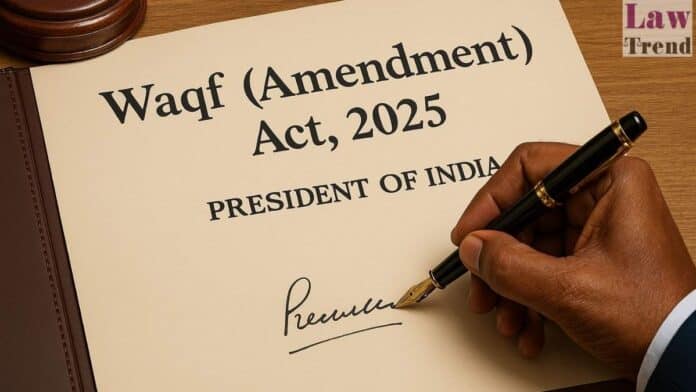The Union Government has formally notified the “Unified Waqf Management, Empowerment, Efficiency and Development Rules, 2025”, laying down a comprehensive digital and administrative framework for the regulation and monitoring of waqf properties across India. The rules were notified on July 3, 2025, under the powers conferred by newly inserted Section 108B of the Waqf Act, 1995, which was introduced through the Waqf (Amendment) Act, 2025, effective from April 8, 2025.
Centralised Digital Portal and Unique ID System
A key highlight of the new rules is the establishment of a centralised portal and database for waqf properties. This portal will be supervised by the Joint Secretary in charge of the waqf division in the Ministry of Minority Affairs. The system will automatically generate unique identification numbers for each waqf and its associated properties, enabling transparent tracking, authentic record-keeping, and monitoring across all States.
Nodal Officers and State Support Units
Each State Government is required to appoint a Nodal Officer (of Joint Secretary rank or higher) and set up a Centralised Support Unit in consultation with the Centre. These units will aid in uploading data, handling registration, maintaining accounts, and carrying out audits and related waqf activities at the state level.
Mutawalli Obligations and Digital Enrollment
All mutawallis (waqf caretakers) must register themselves on the portal using their mobile number and email ID, verified via one-time password (OTP). Once enrolled, they must upload complete details of the waqf and properties under their management.
State-Mandated Survey and Publication of Auqaf
The rules mandate a comprehensive survey of waqf properties in each State. Upon completion, a detailed list of auqaf is to be published, covering:
- Property identification and boundaries
- Current use and occupier
- Creator details, mode and date of creation
- Purpose of the waqf
- Present mutawalli and management structure
This list must be uploaded to the central portal within 90 days of its publication in the official gazette.
Time-Bound Inquiry into Wrongful Waqf Declarations
In cases of disputed waqf declarations, the designated government officer must complete the inquiry within one year of receiving the reference from the District Collector.
Registration of New Waqfs and Social Welfare Provisions
Any waqf created after the commencement of the Waqf (Amendment) Act, 2025 must apply for registration within three months under Section 36 of the Act. The rules also include provisions for maintenance payments to widows, divorced women, and orphans, detailing the manner and channels through which such benefits will be disbursed.
Financial Governance: Audit, Accounts and Registers
The rules comprehensively govern the maintenance of accounts, conduct of audits, and keeping of statutory registers, thereby aiming to bring financial discipline and accountability in the waqf administration system.
Supreme Court Hearing Pending
Meanwhile, the Supreme Court has reserved its judgment on a batch of petitions challenging the validity of the Waqf (Amendment) Act, 2025, with several petitioners seeking an interim stay on its implementation.




